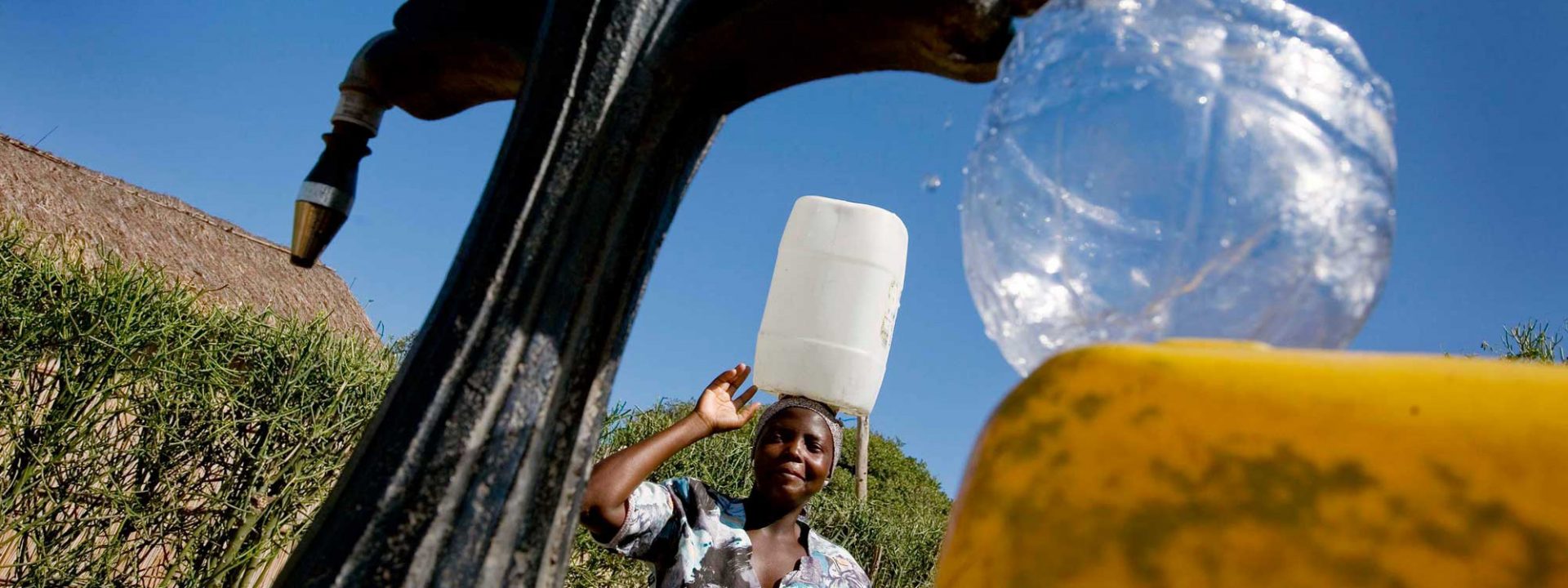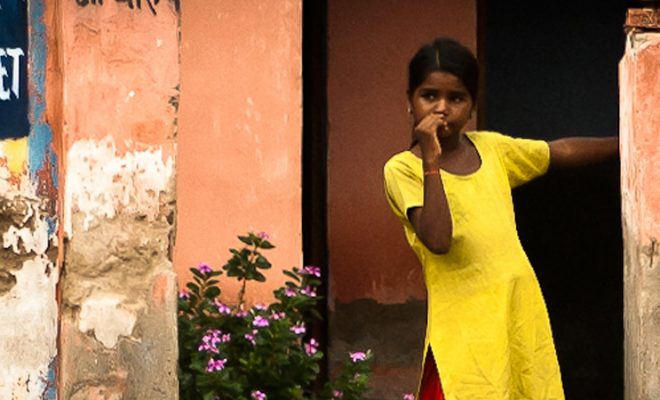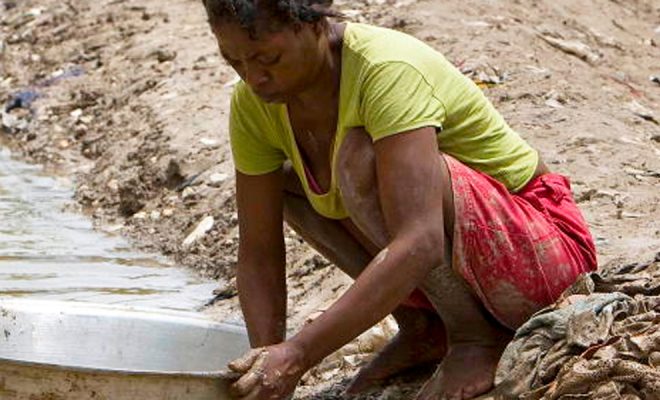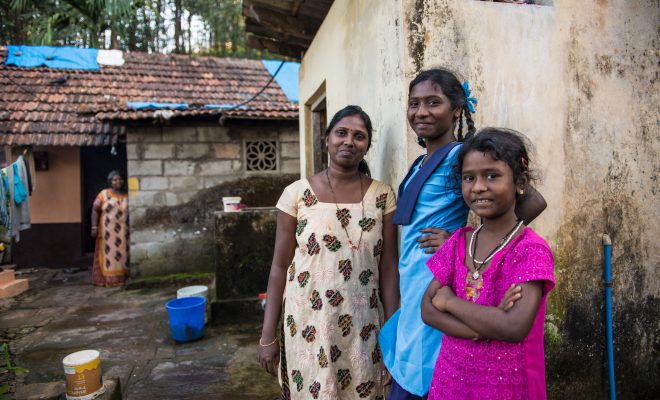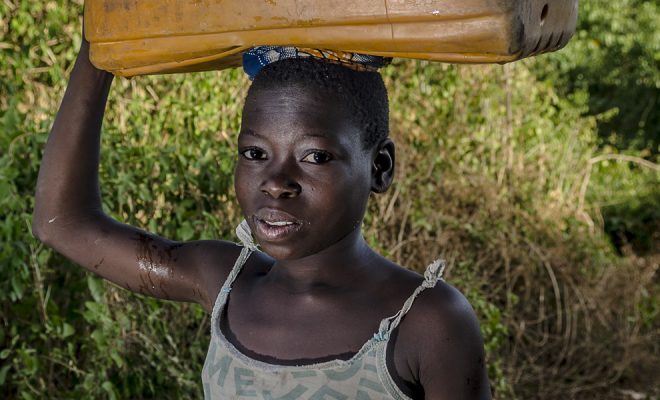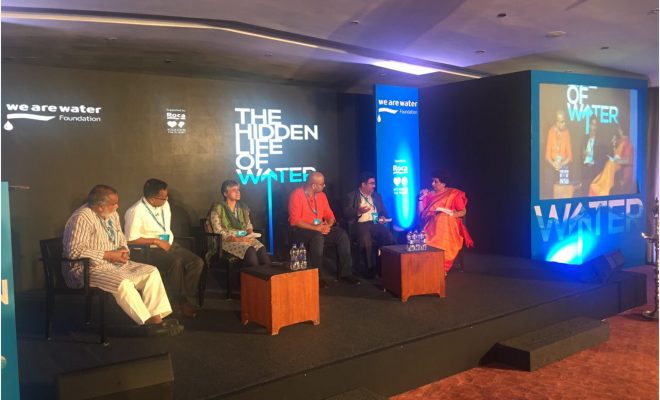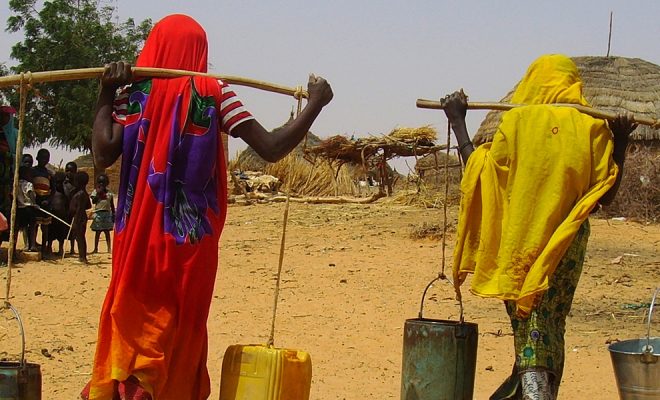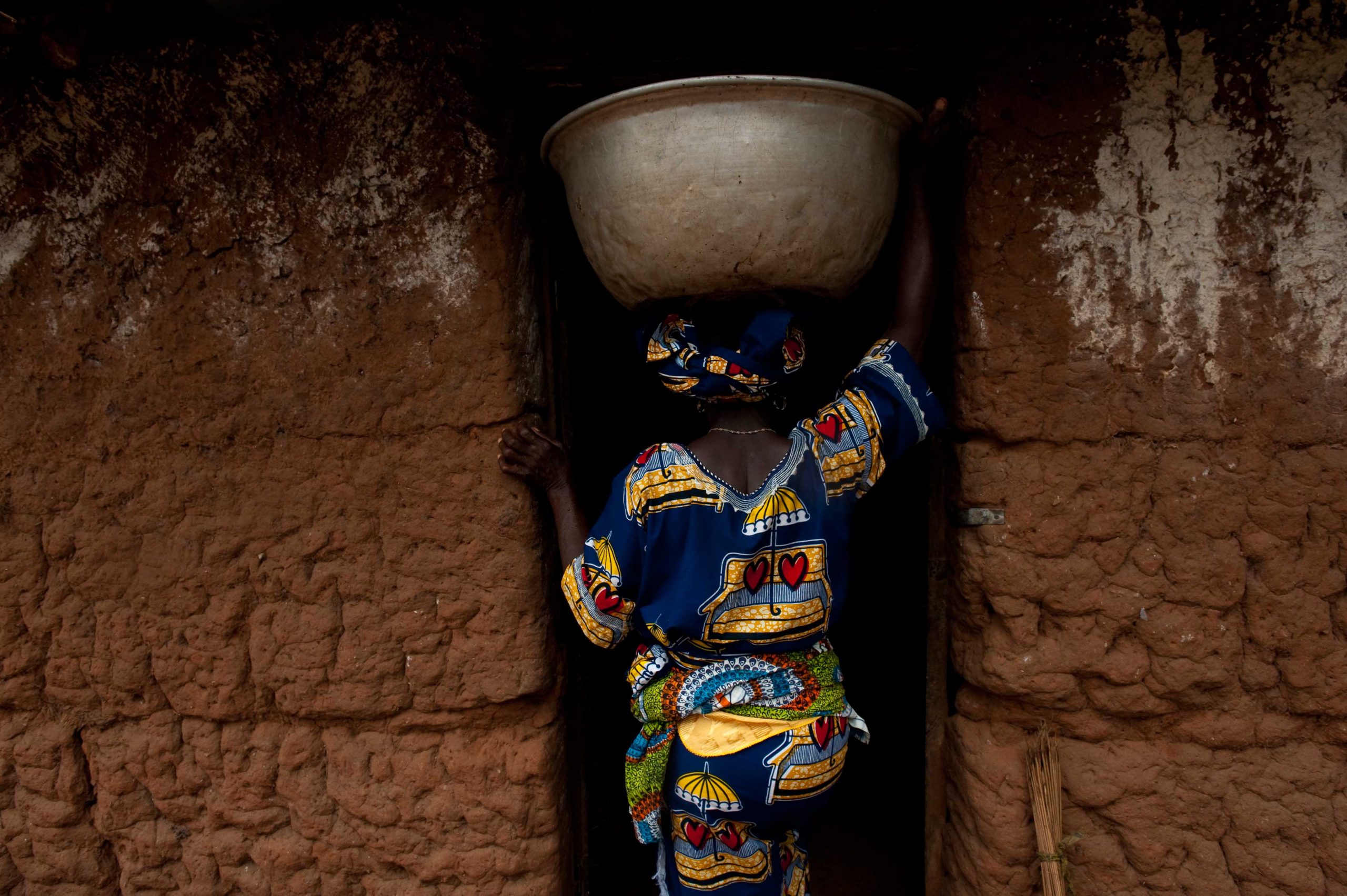
© Arne Hoel / World Bank
Without the full attainment of the Human Right to Water and Sanitation, the right to all other resources is not possible. Revealing this evidence is one of the goals of the campaign The Hidden Life of Water, driven by the Foundation: many times we do not see the life provided by water and sanitation, and gender equality is an essential part of it. Women will be the most benefitted by the full attainment of the right to water and sanitation. This is an essential step towards the achievement of gender equality and the empowerment of women and girls established in Goal 5 of the 17 Sustainable Development Goals (SDG) driven by United Nations. Although there have been significant advances, this is still a major challenge.
No more walking for water
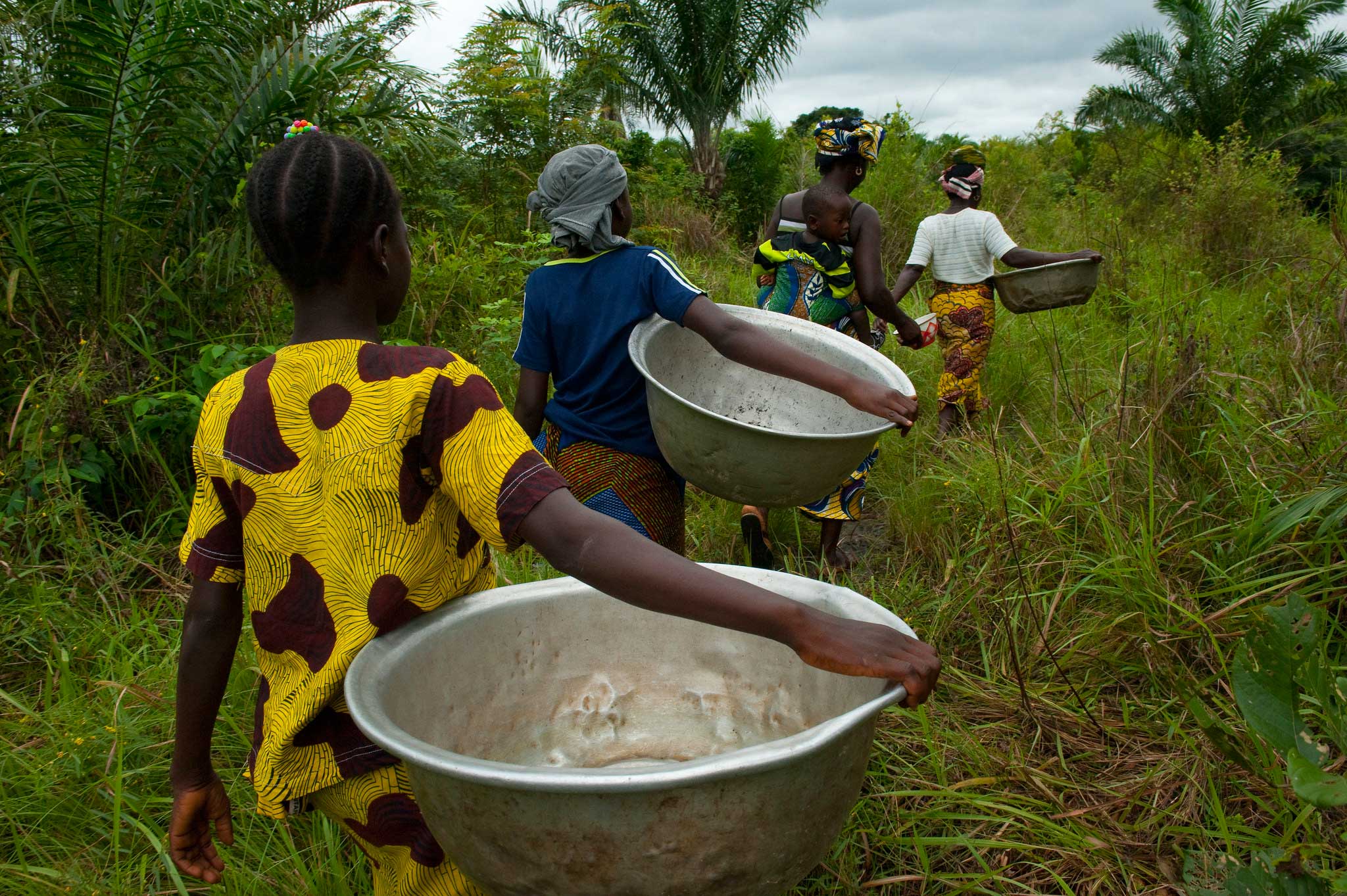
© Arne Hoel / World Bank
One of the most flagrant images denouncing the gender injustice present in those regions with no access to water is that of women carrying heavy drums or jars of up to 20 liters with which they take water from the sources to their families. It is not only the harshness of the long walks under a scorching sun and on unsafe roads estimated at an average of 6 kilometers all around the world; the most serious consequence for them and for their community is the blockage this daily chore causes in their lives. According to UNICEF, 11% of the world population needs to travel from their homes to fetch water located farther than the 1,000 meters establishes by the World Health Organization (WHO) to recognize the Human Right To Water.
The WHO also establishes that the time spent in the collection of water should not exceed 30 minutes. It is estimated that only in Africa, more than a quarter of the population, mostly women, exceeds that time walking to and from a water source. A total of 40 billion hours are spent every year, hours lost for work, school, the household or the community. A time wasted by women for their personal development, for their health and future prospects. Should this happen in Spain, the country would be paralyzed and bankrupt, as the figure exceeds the working hours of the entire working population in 2015 by 2.6 billion (37.4 billion hours).
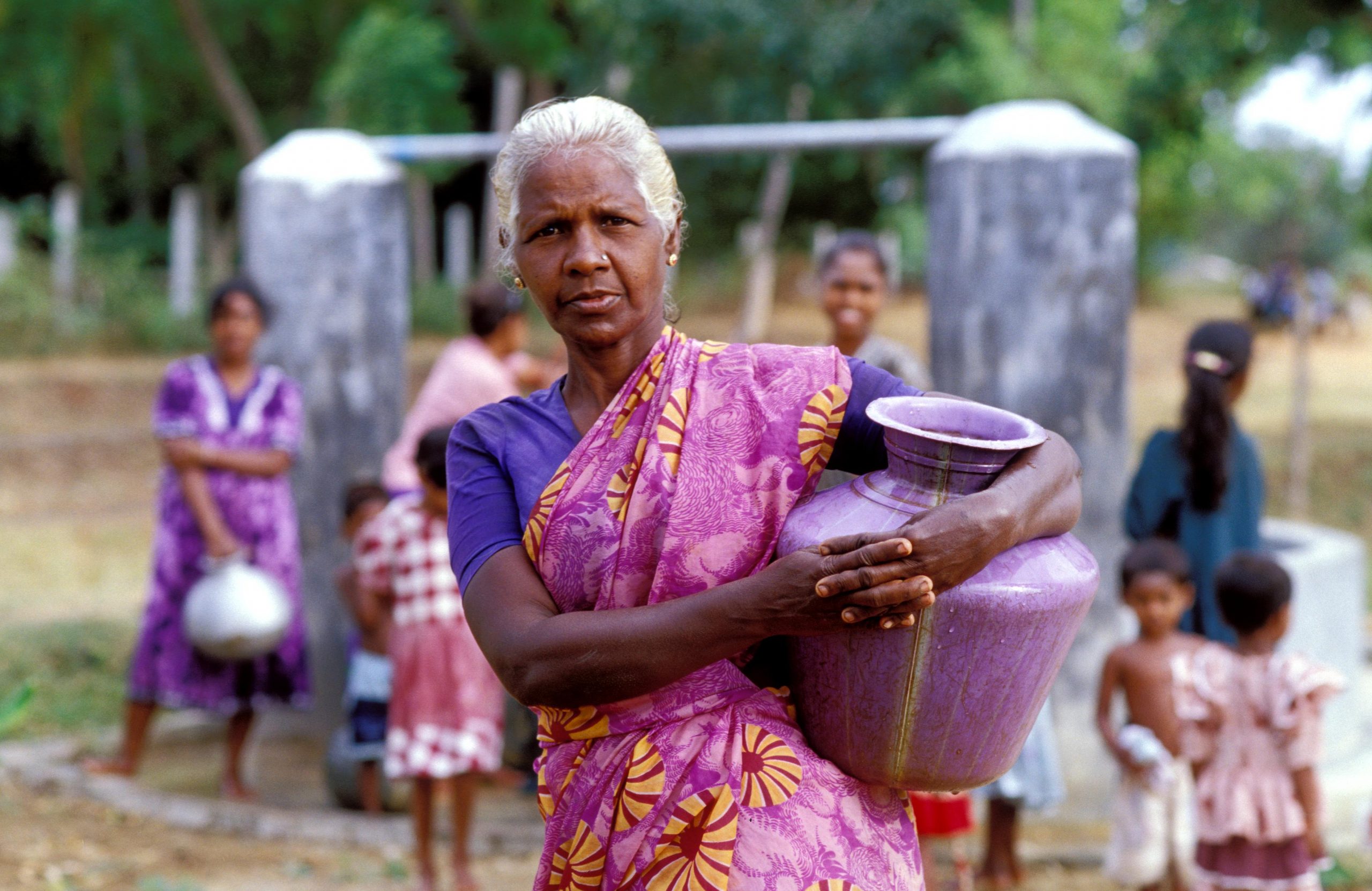
© Dominic Sansoni / World Bank
The campaign #NoWalking4Water driven by the Foundation has a direct impact on this scourge that prevents adult women from participating in productive activities or in the family and social structure, essential factors to leave poverty behind and create communities that are resilient to the devastation of droughts and floods.
No empowerment is possible without education
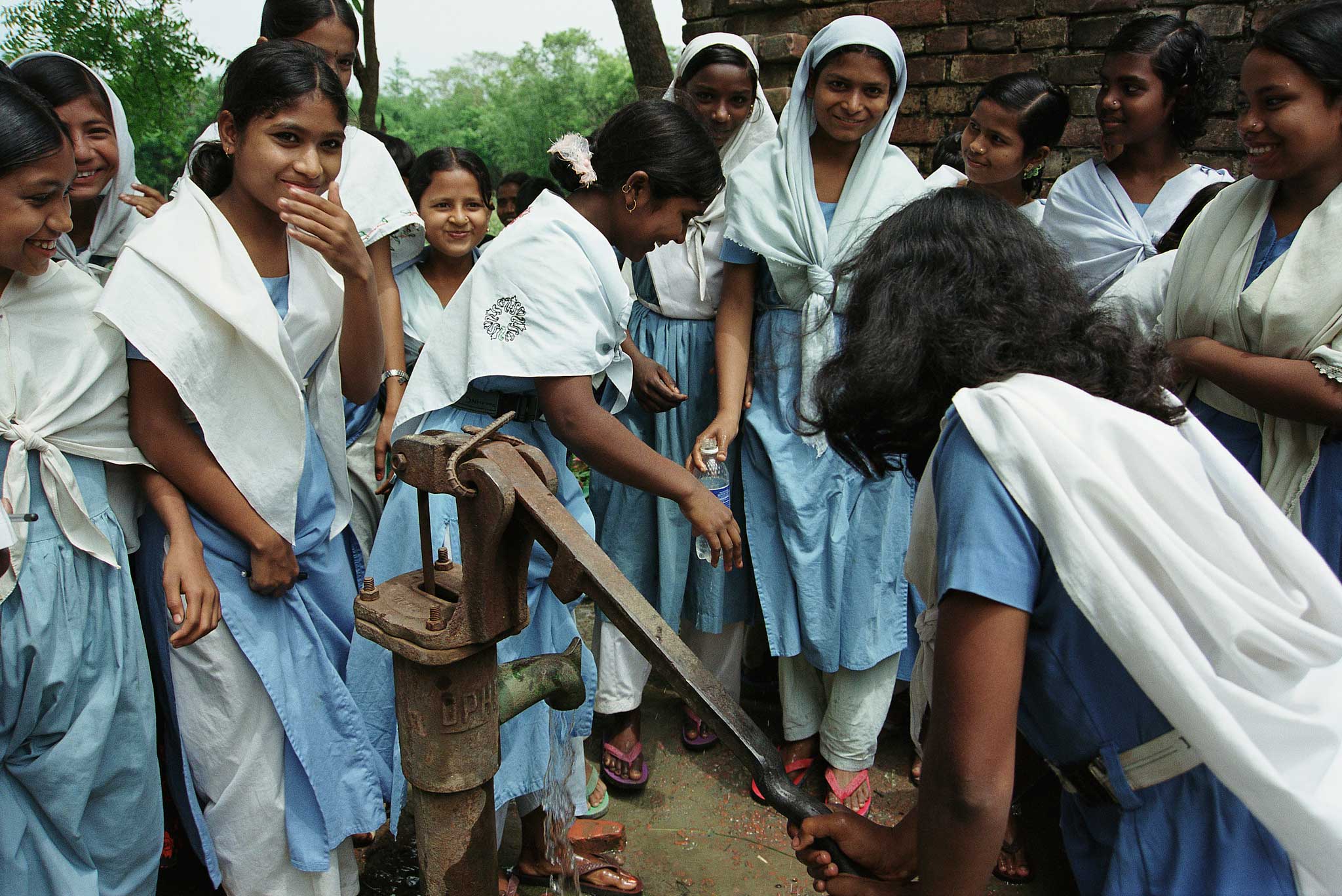
©Scott Wallace / World Bank
Furthermore, those teenagers and girls that accompany their mothers in the transport of water miss school, and therefore a vicious circle originates in the community leading to social impoverishment without development possibilities. No empowerment is possible without education and only two thirds of the developing countries have reached gender equality in primary education; this proportion worsens due to the trips to fetch water in those areas with no access.
The schooling problems aggravate in those areas with a lack of gender-segregated and safe washing facilities in schools, causing high levels of absenteeism among teenagers as they cannot perform their intimate hygiene when they reach their menstrual age.
Millions of women are still discriminated in the world of access to sanitation. The lack of hygienic education and the social disregard for menstruation in some cultures are added to the lack of private latrines in many areas of the world. Gender separation and the safety of the facilities are non-existent in many areas, resulting in degrading discrimination against women. These factors prevent women from taking care of their health and maintaining their dignity in society.
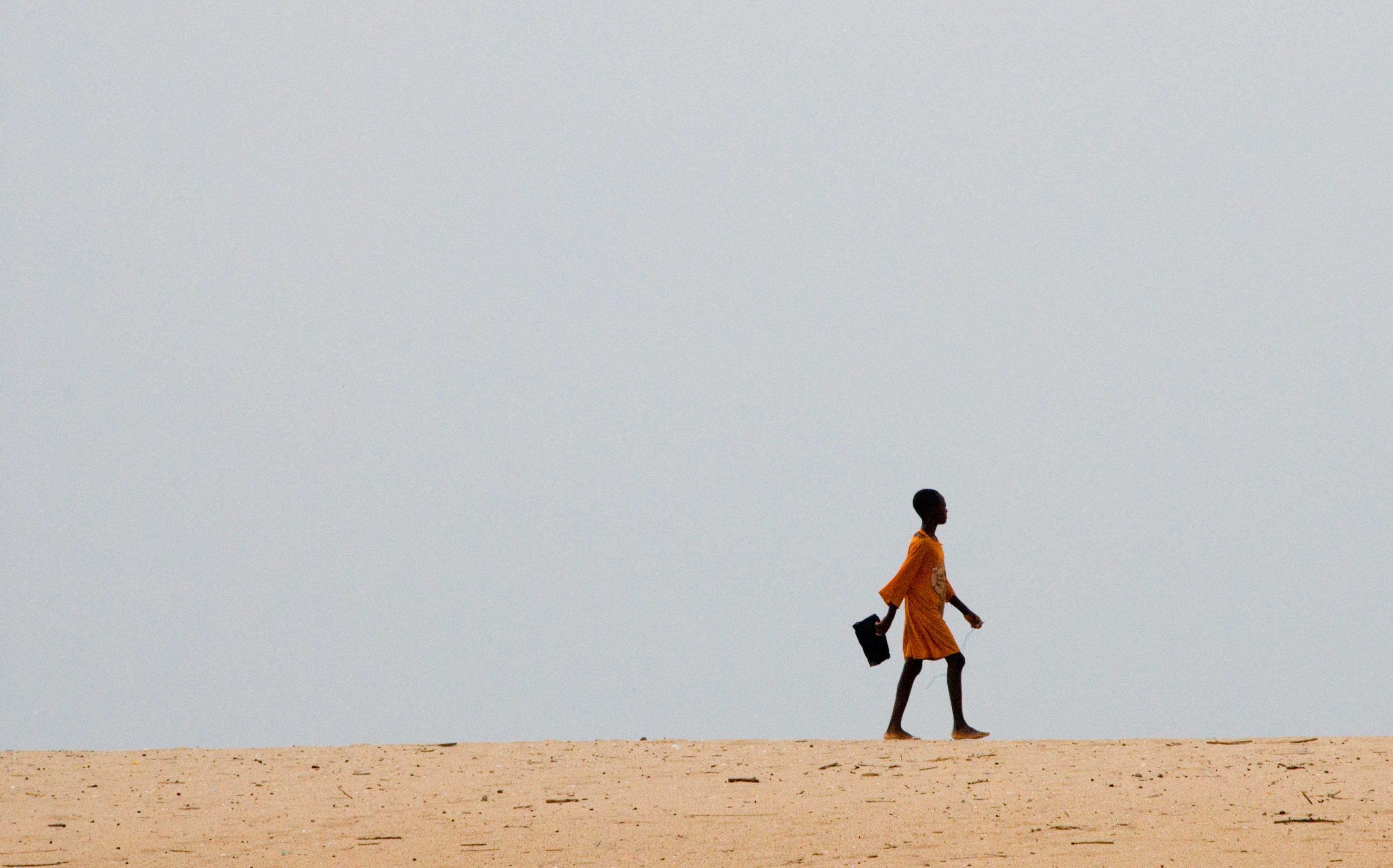
© Arne Hoel / World Bank
Latrines for health and dignity
After more than eight years developing aid projects that have benefitted more than 540,000 people, in the Foundation we have gained a vast experience in the problems presented by the installation and use of latrines in the most deprived areas. Several projects in India, in Burkina Faso, Bangladesh, Bolivia, Morocco, Guinea-Bissau and Ghana are some examples of these practices that have been included in the Manual for the construction of latrines and wells which gathers this accumulated experience with the aim of transmitting this knowledge to these communities, so that they have the capacity of efficiently building them, adapting them to their climate and culture.
Up to seven out of every ten women in the world experience physical and/or sexual violence at some point in their lives. In those areas with no access to latrines this proportion increases. In vast regions of Asia and Africa, women need the privacy and safety of latrines to avoid having to defecate in the open, so that they do not have to wait until nighttime, preventing sexual assaults and being able to practice their intimate hygiene.
End the taboo of menstruation
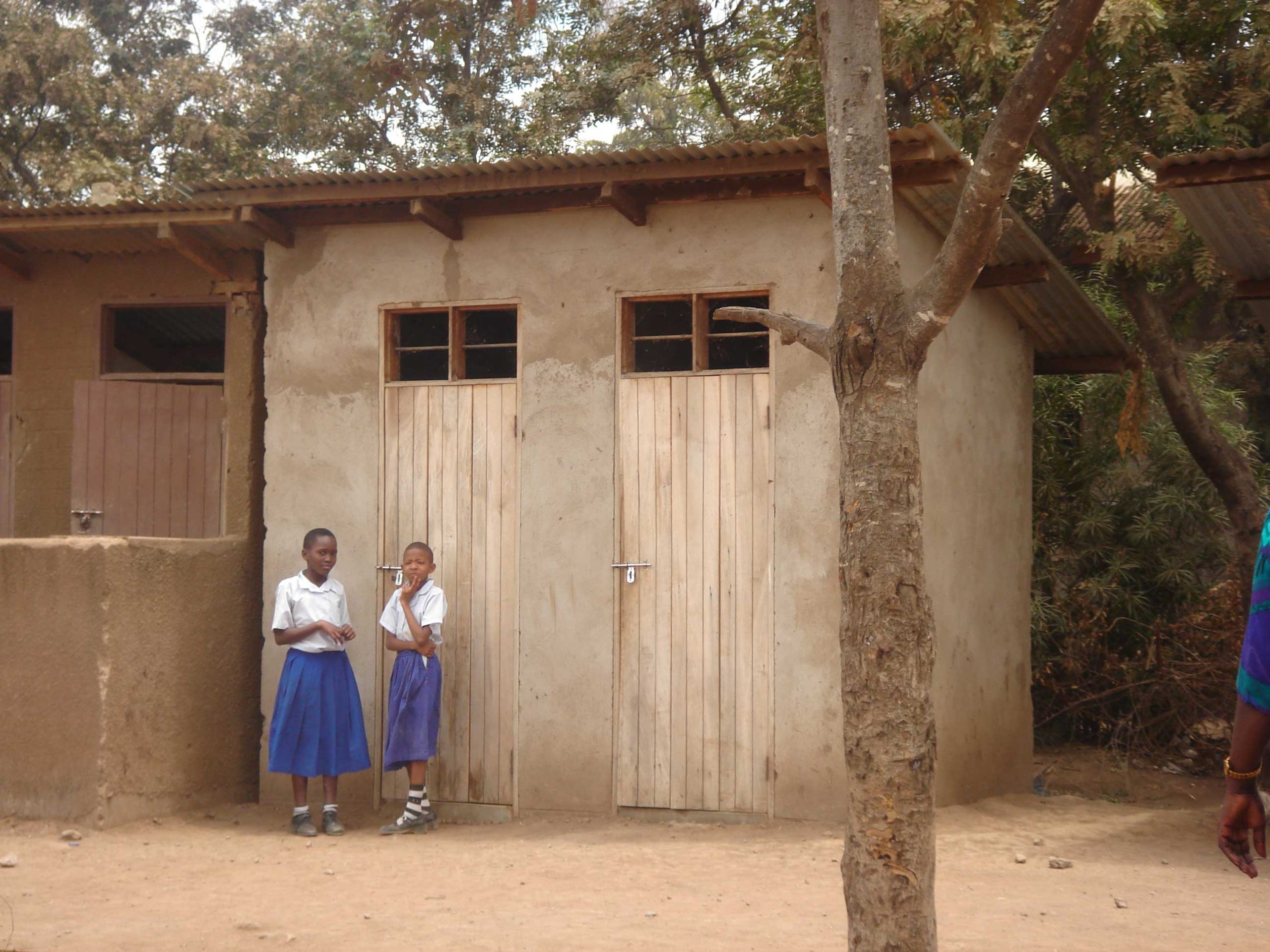
©Marni Sommer
Women with no privacy cannot safeguard their health as they are not able to practice their menstrual hygiene effectively. This worsens in those regions of the world in which menstruation is considered something dirty and degrading and this is a serious problem in poor regions where sanitary pads are an unaffordable luxury for women. This is the case, for instance, in many regions in India, where only 12% of the women use sanitary pads due to their high price, their use being practically non-existent in the lower castes. In these cases, women usually resort to non-hygienic and unhealthy measures, using rags or old cloths, cloths that are not periodically washed out of shame of revealing the menstruation; or they are cleaned with polluted water, so that this garment becomes another element of disease transmission.
An empowering factor in this case is creating economic models of access to intimate hygiene, such as the one carried out by the Foundation in Haiderpur Haryana, in India, a project designed not only to provide economic entrepreneurship to women through business opportunities, but also to promote menstrual hygiene in these communities.
Invisibility, the worst condemnation
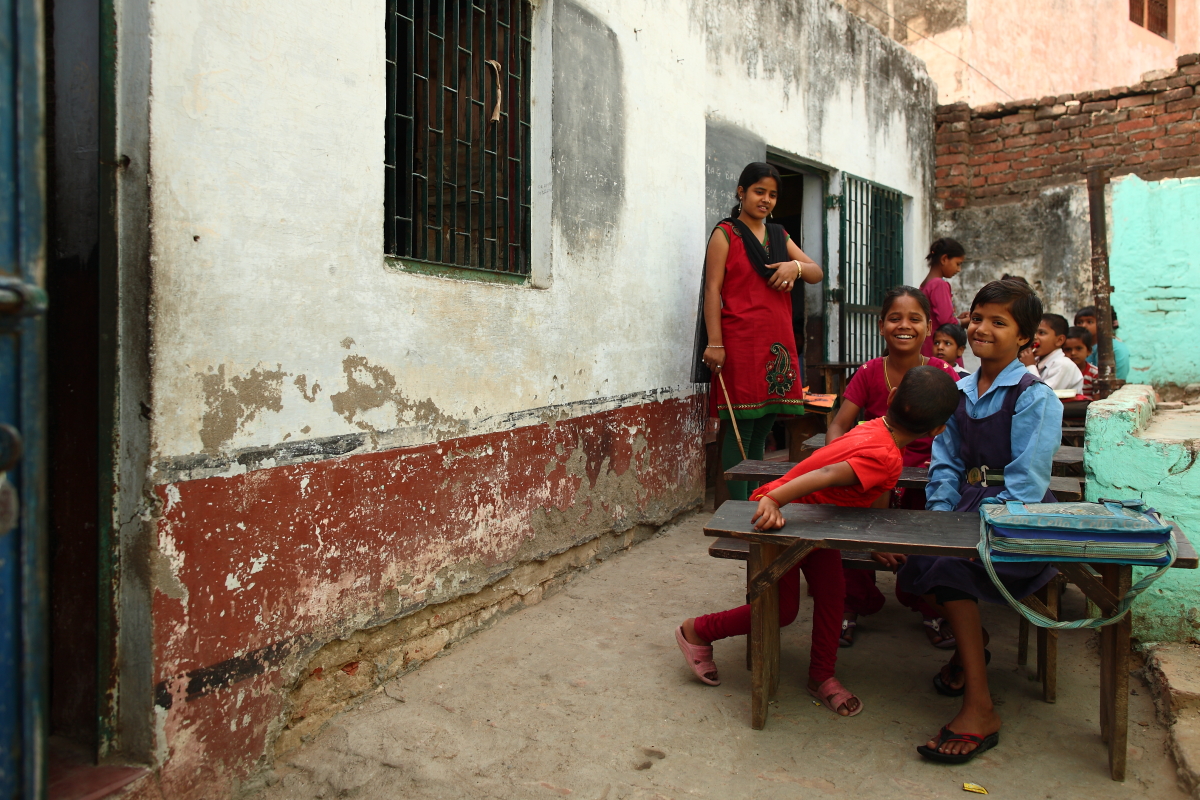
©Keith Tan
The lack of empowerment of women is evident in many social environments. All around the world, nearly 750 million women and girls marry before reaching the age of 18. We do not know the exact figure, because they experience another injustice; statistical invisibility, many of them are not included in the censuses and therefore do not have the right to denounce. This is more flagrant in deprived areas in the process of desertification such as the Sahel, where the lack of data undermines the management of the access to water. Within these unregistered groups, women and girls are further marginalized as they are socially and bureaucratically marginalized with regard to men.
Less than 20 % of the land owners around the world are women. In a world impoverished by the lack of water, women are dragged into migratory movements and generally end up crowded with their families in urban slums. There, far away from their land, their prospects of leaving misery behind are even less. Bureaucratic invisibility greatly impairs the prevision of the migratory pressure towards large cities where the water and sanitation supply services often worsen when the government’s management capacity is overwhelmed.
There is no access to technology or governance in poverty
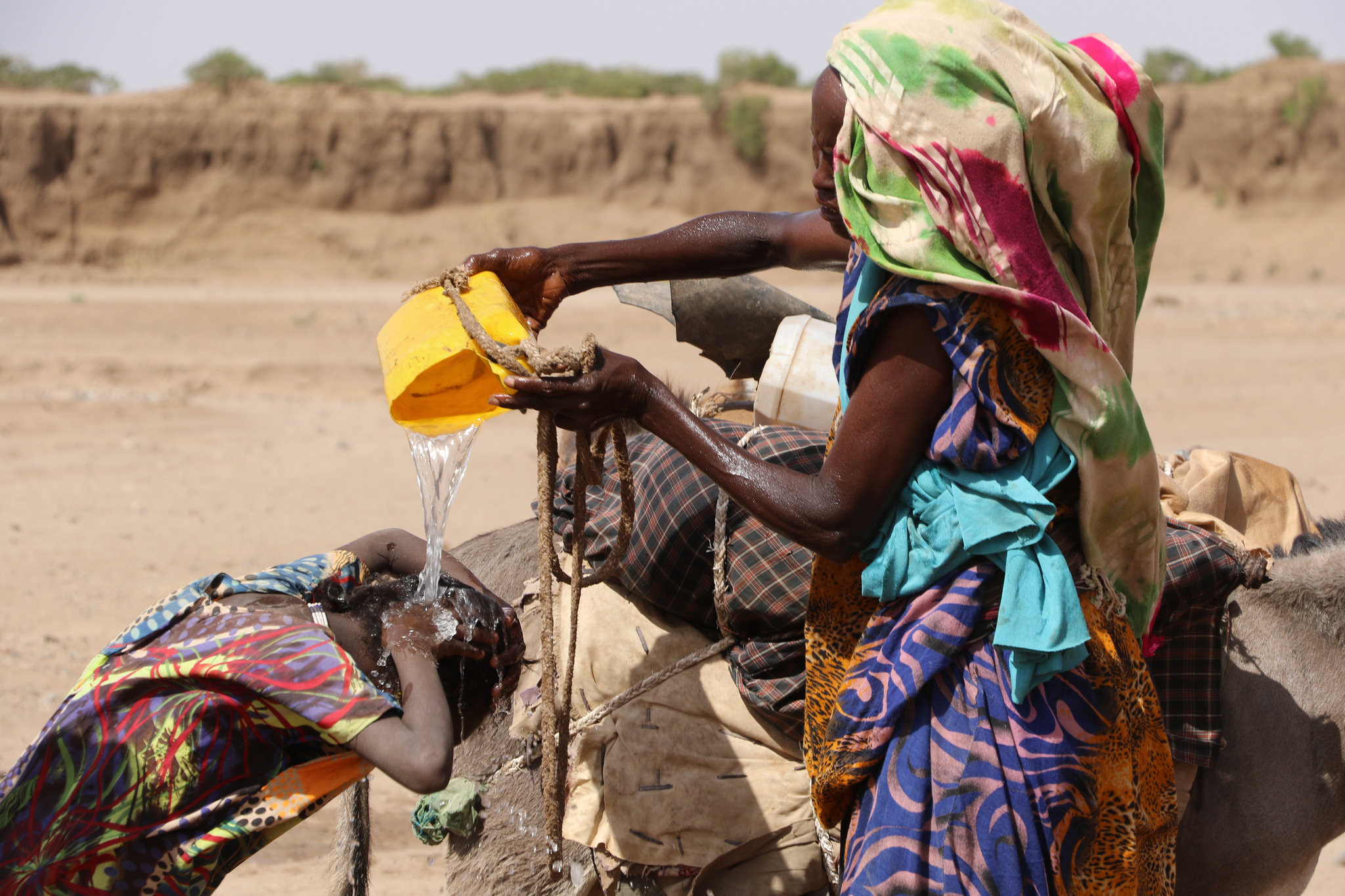
© European Union/ECHO/Anouk Delafortrie
In drought-affected areas, poverty is chronic and it is not possible to access any technological knowledge to improve, for instance, the irrigation systems and make the most of water, or develop efficient systems for building reservoirs and obtaining solar energy. These regions have the lowest rate of access to training for women.
Along with the access to technology, women must be fully incorporated into the governance of access to water and sanitation, the cornerstone of any sustainable development. In June 2016, only 22.8% of all national members of Parliament were women. There has been significant progress, as they were only 11.3% in 1995, but more needs to be done.
The world’s progress towards sustainability inevitably requires the full attainment of SDG no. 5. This is a goal that cannot be achieved without a full access to water and sanitation. The hidden life of water proves this.
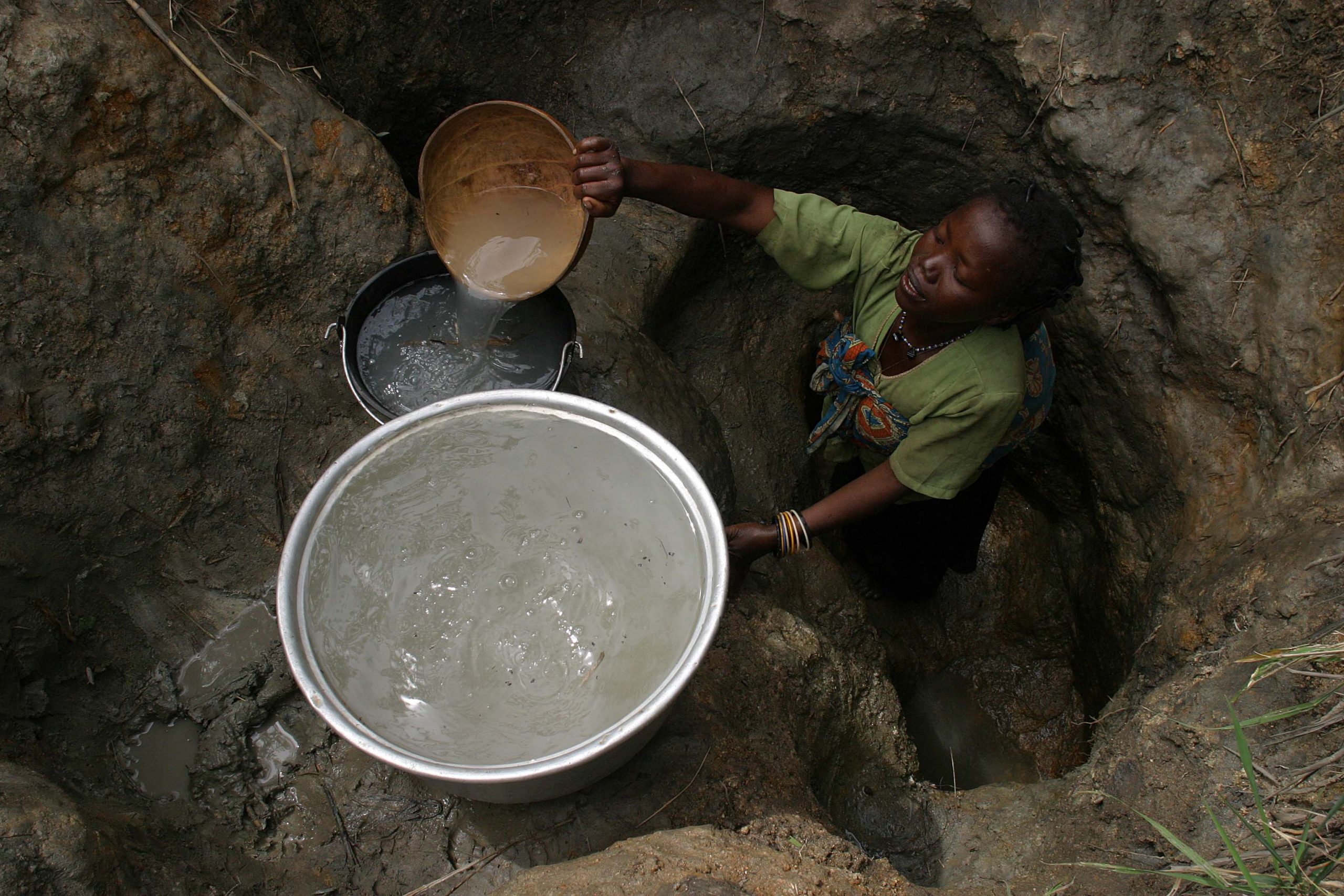
©Pierre Holtz / UNICEF


